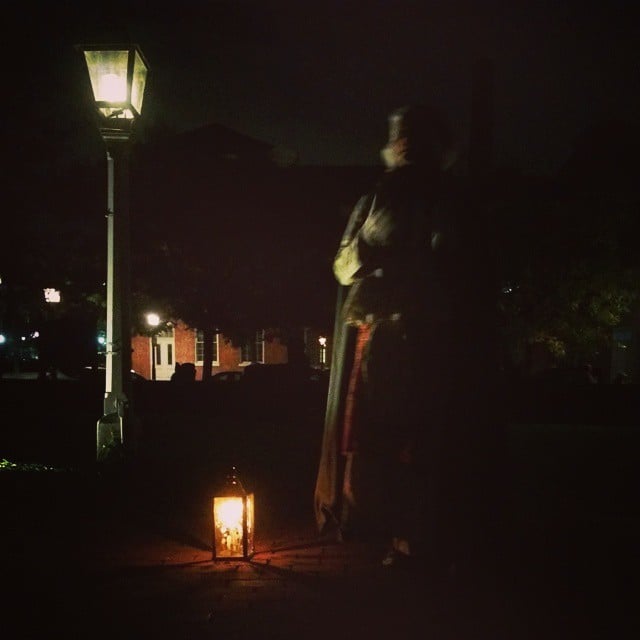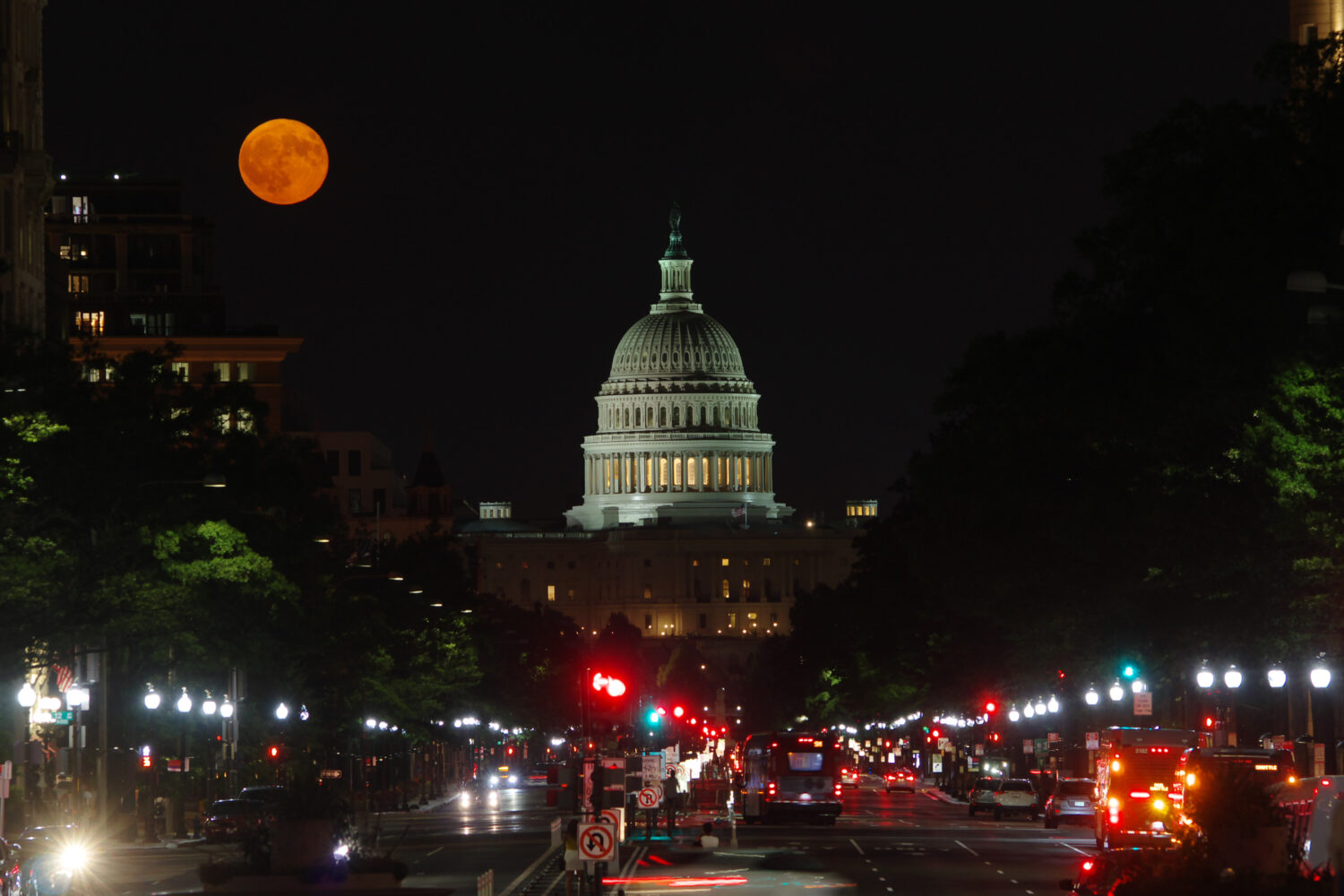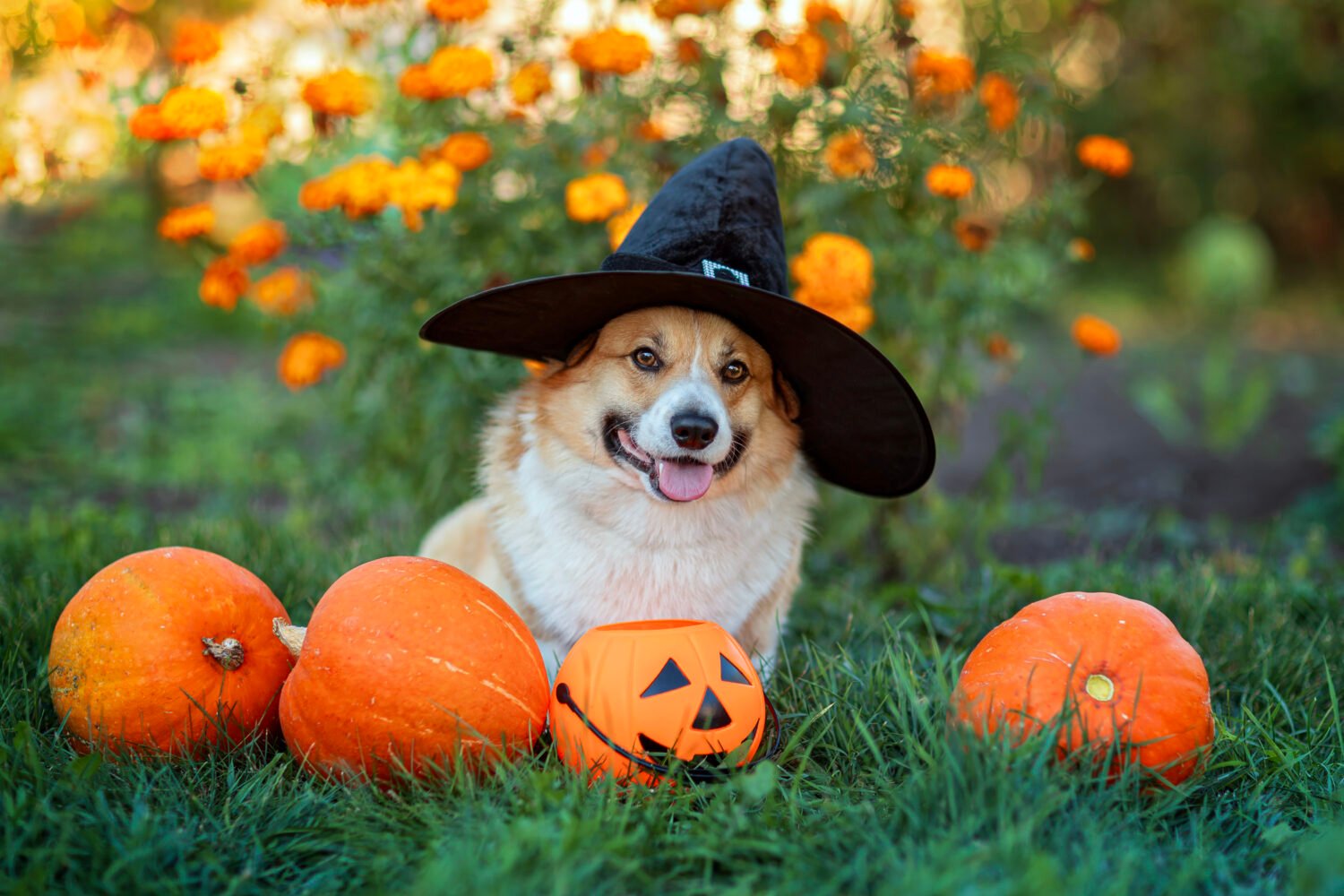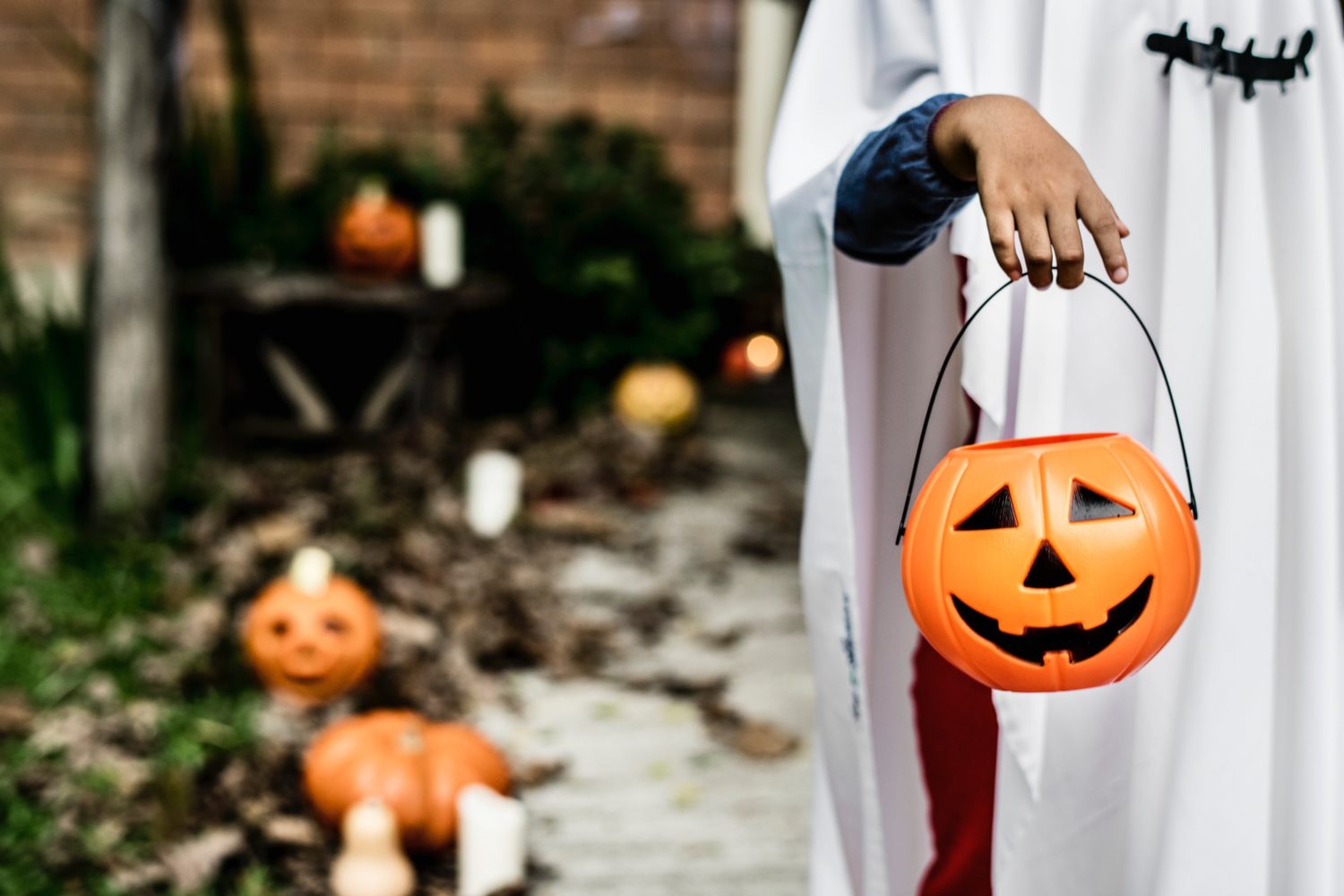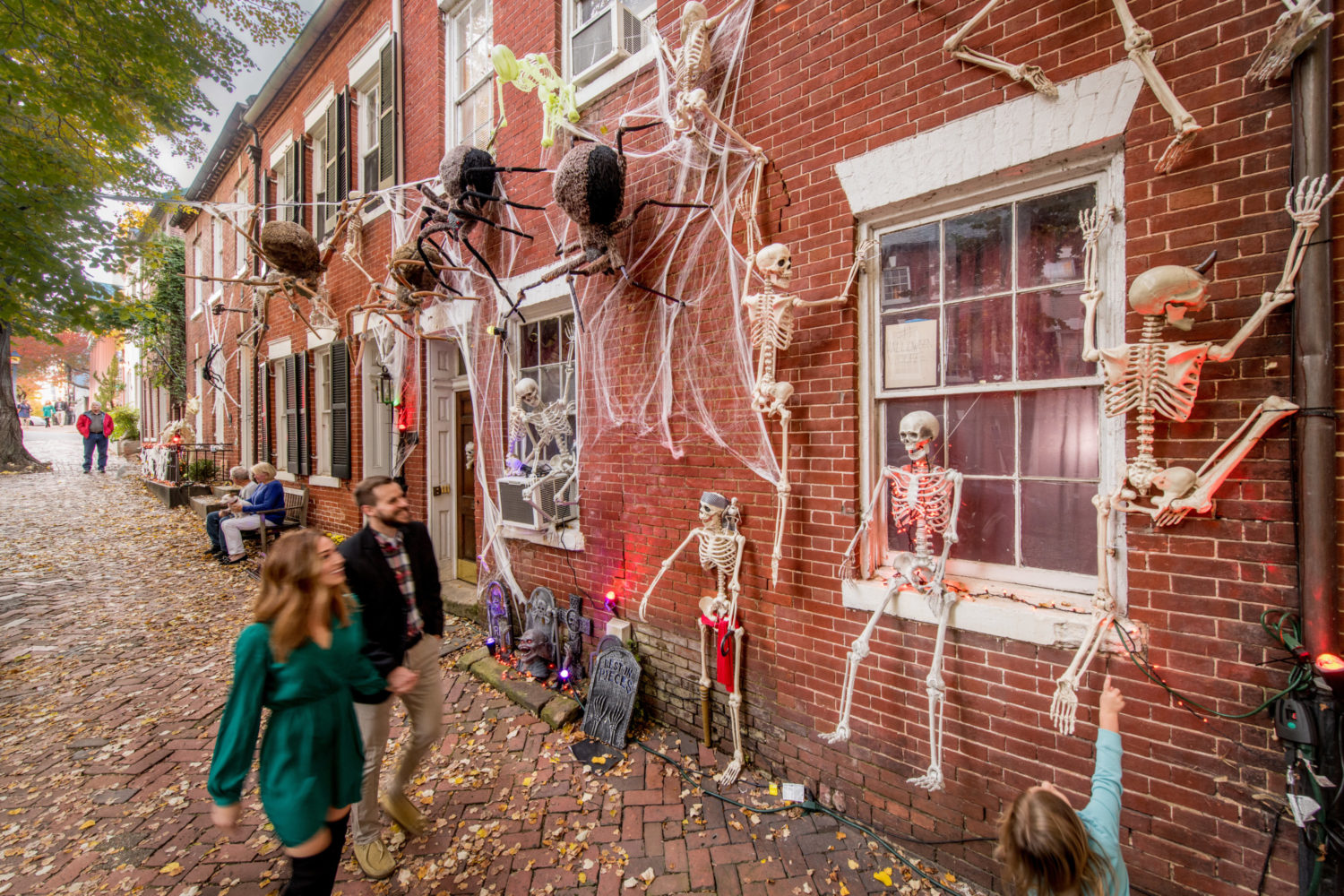It’s a dusky Saturday evening, and I’m across the street from the Treasury, in a canyon of white stone federal buildings, searching for my ghost tour guide. I imagine him to be a sort of Charon figure, a hooded man who, a half dozen times per weekend, shepherds tourists into the realm of the supernatural for 30 bucks a pop. Families stream past with Cheesecake Factory bags, protesters carry signs about Iran, and then I see him: a cloaked man in a gold-trimmed tricorn, a billowy white shirt with elaborate cuffs, and a patchwork vest that sparkles in the light of his fake lantern—more Paul Revere than Charon, but with a televangelist-style microphone strapped to his cheek.
Like moths to the glow of the lantern, 26 of us gather round. “I’ve always been interested in the supernatural,” the guide explains, before asking us to raise our hands if we’re local. All but six of us do. “Oh, well,” he says. “I’ll show you the White House anyway.” This is the first sign of trouble: He’s leading us away from the bar where this shindig is supposed to begin.
You see, this is a boozy ghost tour—a downtown bar crawl that appears educational on your credit card statement (ghosts being bound up with history and all), but also has a key practical effect: Drinking muddles our perceptual abilities, making it marginally more plausible to “see” a ghost. Let me frontload that I am not a believer in ghosts, but I’d love to have my mind changed. To the good spirits of the District of Columbia: You may consider that a dare.
Apparently, the first bar was too crowded to accommodate our group, so we’re now standing outside the White House while Paul Revere shouts into his mic about embarrassing things like the spirit world. I know, it’s a ghost tour; that’s literally what I signed up for. But, to be fair, my attitude typically improves with a beer.
It doesn’t help that my only previous ghost tour ended so badly. This was years ago, in New Orleans with my high school friends, and—as is often the case when you’re “in New Orleans with your high school friends”—the disaster was entirely our fault. The big mistake was believing our Californian friend who claimed that the edibles were mild.
We ate them on Bourbon Street, then trekked to a fountain on the periphery of the French Quarter. At first, everything seemed to be fine. This was a low-key, family affair: parents and children, older people, our group behaving with admirable decorum as the guide recited the rules. A few rules on a ghost tour seems normal—stick with the group, don’t touch anything historical, keep the chatter soft—but on this tour, the rules were exhaustive, at least 15 minutes of them, theatrically explained by a young woman who seemed to relish our captivity, like Satan holding forth to a roomful of souls. It was during “the rules” that the drugs crashed through the blood-brain barrier, dooming our supernatural night.
First came our friend’s agitation. “These people aren’t here for the ghosts,” she said suspiciously, “they’re here for the rules. They love rules.” Encircled by authoritarians, she grew distraught and refused to settle down. At some point—still during the rules—she confessed that “I can’t tell if I’m in public or private anymore,” seeming to be truly afraid. Apparently, she believed herself to be actively peeing her pants, but each time she checked, they were dry.
We thought this rowdiness would pass, or at least grow less conspicuous once the actual tour began. But it did not. The first ghost story was lost to our multiple rule violations: irrepressible giggling, bouts of wandering away from the tour. No longer fit for public consumption, we took our leave as politely as possible for seven people departing a tour of 20. We saw no ghosts. We tipped heartily on Venmo. When our Uber driver realized what was happening, she snagged herself an edible for the road.
My DC ghost tour experience was sort of the opposite logistically—fully sober, attended the whole tour, scarcely a trickle of rules—but it was similar overall: no ghosts, kind of a drag. This wasn’t the fault of Paul Revere, who knew his material cold and did his best to keep his flock in high spirits while trying—and largely failing—to obtain us spirits of the liquid kind.
The first bar, as I said, was too crowded. The next had kicked out the earlier tour, so it didn’t seem prudent to re-attempt. By this point, the troops had grown restless: We were halfway done and needed, as Paul Revere said, our “drinky drink.” To pacify us, he circulated some chintzy electromagnetic field readers—a Ghostbusters-style gadget—that would, seemingly at random, flash red.
It was in this frame of mind that we arrived at the Willard, a ritzy hotel with a storied political history: It’s where Martin Luther King wrote his “I Have a Dream Speech,” where Rudy Giuliani holed up to plot the overthrow of the 2020 election, and, allegedly, where President Ulysses S. Grant coined the term “lobbying” to describe the sycophants who would pester him for favors while he attempted to get drunk in peace. I, too, wanted to drink in peace in the Willard’s lobby, but as we traversed the atrium, a problem arose: A pale skinny man in a fancy dark suit—a manager, not a specter—strode towards our group with great alarm, blocking our path to the bar.
He and Paul Revere engaged in some feverish whispering, then the manager retreated a few paces while the guide broke the news: We could go to the bar, but not all at once—only in pairs or small groups. For a crew of 26, this was going to take a while—yet another blow to our deteriorating night. Nonetheless, three ladies made a break for the liquor while the rest of us settled into a nook at the back of the lobby. Our sweatshirted gaggle passed women in ballgowns and men in tuxedos as orchestral music wafted softly through the air.
As we waited, our poor, beleaguered guide described with as much enthusiasm as possible—tiptoeing delicately between “audible” and “not so loud as to get us the ax”—a demon cat that allegedly appears in the Capitol, but by this point I was barely listening. Instead, I watched an older woman stare blankly at the electromagnetic meter sitting dead in her hand. When my opportunity for a “drinky drink” finally arrived, I turned it down; I was too demoralized. I wasn’t going to see a ghost.
It was at this point that I thought back to New Orleans. The night before the ghost tour, we’d done a Bourbon Street bar crawl—a fake bachelorette party where we each pretended to be the bride at a different bar—and at one of them, we left our friend’s number on a napkin for the bartender. He called her when he got off work. This bartender was a delightful man, a sweet man, a gentle man—a man who somehow took it graciously when I told him, drunkenly, that he looks like Lee Harvey Oswald. The only time I saw him bristle was when we mentioned our ghost tour plans.
“Ghosts aren’t real,” he said, and a few members of our group took umbrage. They argued not that he was wrong, but that one shouldn’t make such broad proclamations, that these phenomena are understood differently in different cultures, that refusing the folk wisdom of ghost stories is ugly and close-minded. A blessedly unsentimental person, he replied: “This city is going to be underwater soon because people refuse to believe in science, so no, I am not going to humor ‘ghosts.’”
This is an excellent and high-minded objection to ghost tours, but it certainly isn’t mine—my complaint is aesthetic: For the most part, the stories aren’t good. They all seem to exist at the godforesaken crossroads of “not especially piquant historical anecdotes” and “obviously untrue.”
Outside the Willard, Paul Revere fires up his mic—“We got lots of looks in there,” he jokes—then points to the Waldorf Astoria across the way. Apparently, generations ago, the postmaster fell down the elevator shaft and now the mechanism is glitchy—stopping between floors, flickering lights, that sort of thing. Is this anecdote of historical value? No. Spooky? Not unless you’re actually in the elevator. I know I’m a scrooge and I’m sorry. But if a story is neither edifying nor entertaining, then I’m at least going to need some booze.

